Life at the Margins: The Challenges of Multiple Discrimination
The chapters
This Minority Story is a collection of short articles and case studies focusing on discrimination on different grounds.
- 01
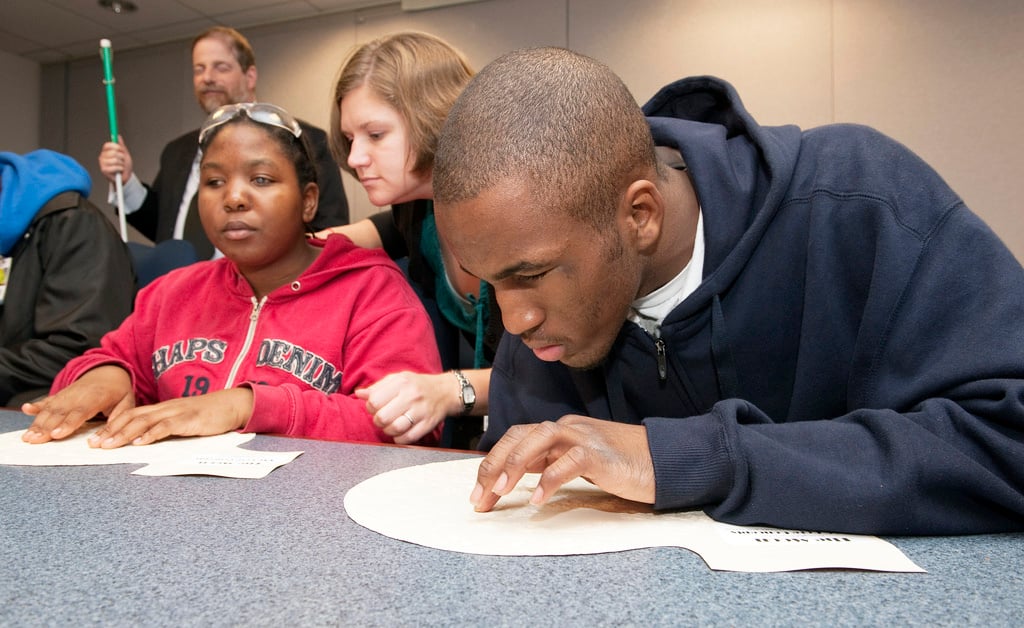
Disability
by Nora Ellen Groce According to the World Health Organization (WHO), people with disabilities – that is, people with physical, sensory, intellectual or mental health disabilities – make up 15 per cent of the world’s population. Yet when…
9 min read
- 02
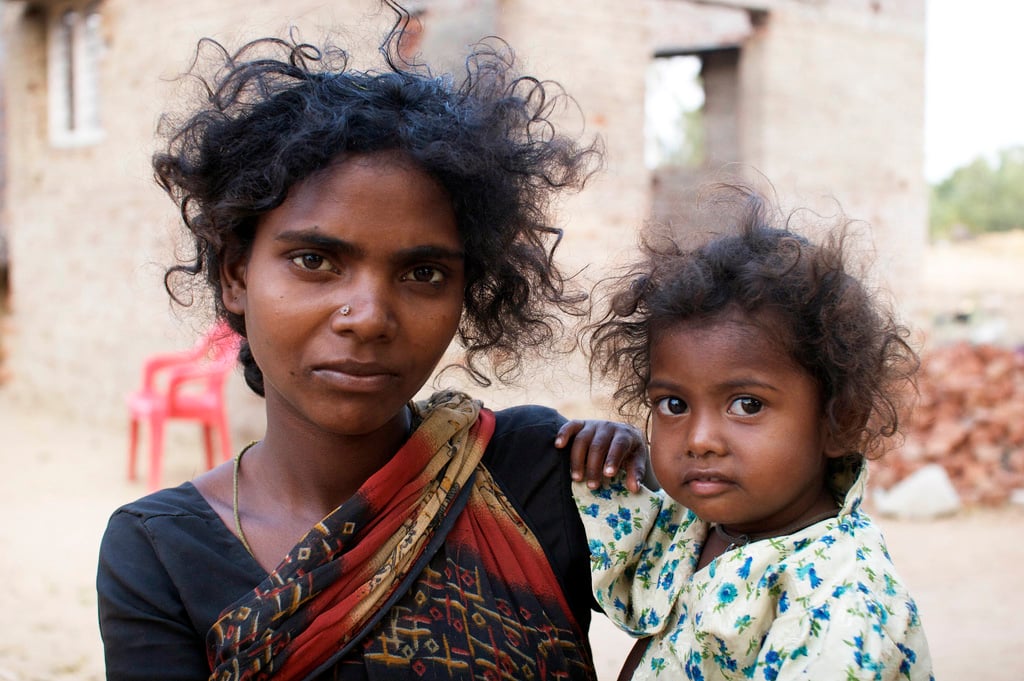
Case study: Dalits with disabilities in India
Dalits, long victim to a caste-based system of social hierarchy that regards them as ‘untouchables’, comprise around 17 per cent of India’s total population. While caste-based discrimination was outlawed in 1955, the social phenomenon of…
4 min read
- 03
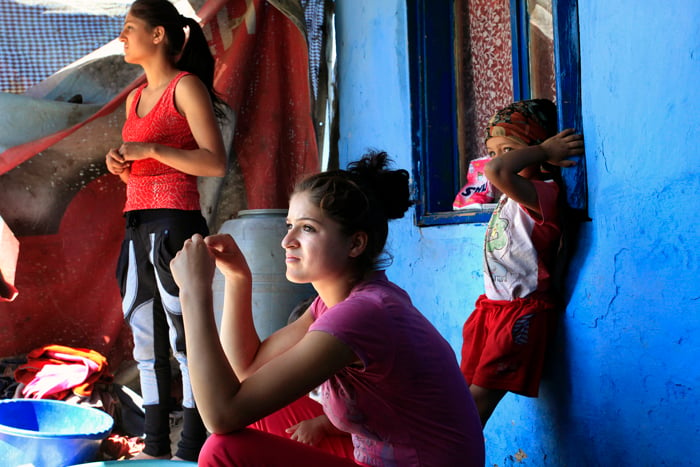
Children and young people
by Jasmin Qureshi The rights of minority and indigenous children and young people are often not ensured or protected. They face barriers to education, for example, and lack basic health care in many parts of the world. Children are already…
8 min read
- 04
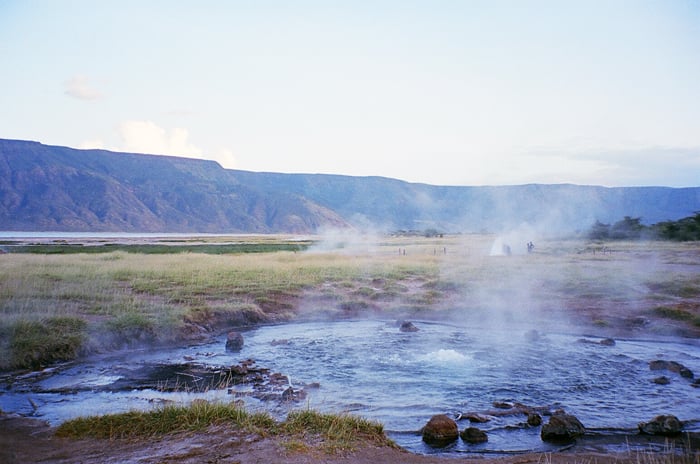
Case study: Endorois youth in Kenya
by Rebecca Marlin Indigenous Endorois had inhabited Lake Bogoria for centuries when, in the 1970s, the Kenyan government forcibly removed them from their ancestral land. Their eviction brought to an end a unique way of life rich with culture…
3 min read
- 05

Age
by Jasmin Qureshi Across the globe, older people face discrimination in all areas of their lives. Whether they are accessing health care, seeking employment, or protecting their right to their land, older people are likely to experience…
7 min read
- 06
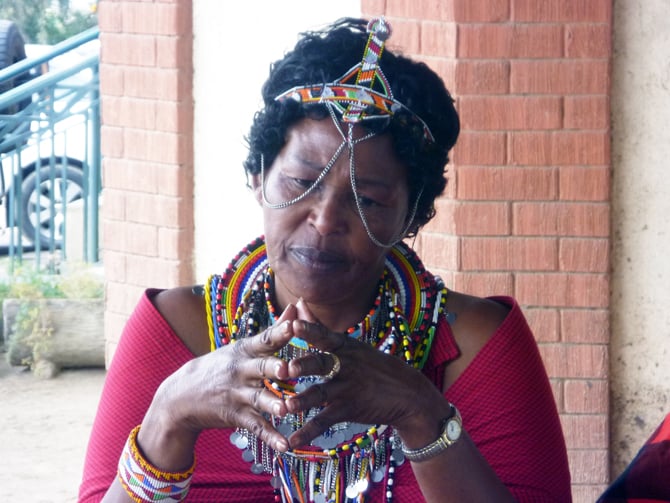
Photo story: Minority and indigenous older people
Older people from minority and indigenous backgrounds are well respected leaders and often credited with improving the well-being of their families and communities. These photos tell some of their stories. Kee Or, 104-year-old spiritual leader…
1 min read
- 07
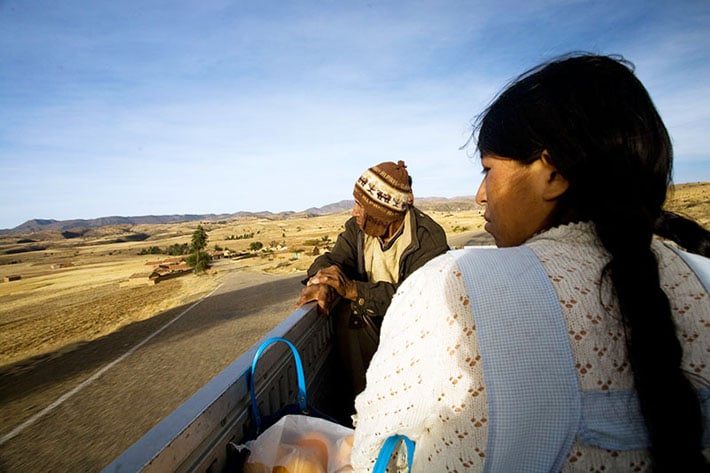
overty and livelihoods
by Electra Babouri Socio-economic inequality is determined by a complex range of factors, manifested in many interconnected spheres, such as livelihoods, income, material assets, access to social goods, influence and participation. While state…
7 min read
- 08
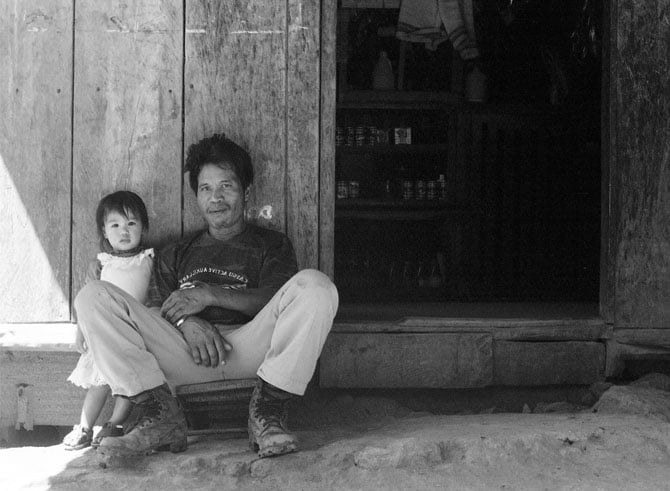
Indigenous livelihoods in the Philippines
by Hanna Hindstrom Four years ago, a typhoon struck the northern Filipino city of Baguio. The storm ruptured the walls of the city’s mounting garbage dump, sending hundreds of tonnes of urban waste cascading into the streets. The landslide…
2 min read
- 09
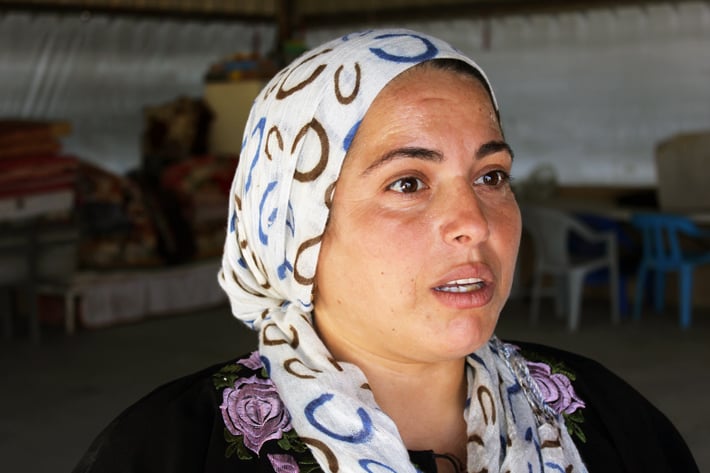
Women
by Farah Mihlar Minority and indigenous women face a unique set of challenges on account of their gender and community status, a form of intersectional discrimination that is often particularly difficult to address. As neither men within the…
7 min read
- 10
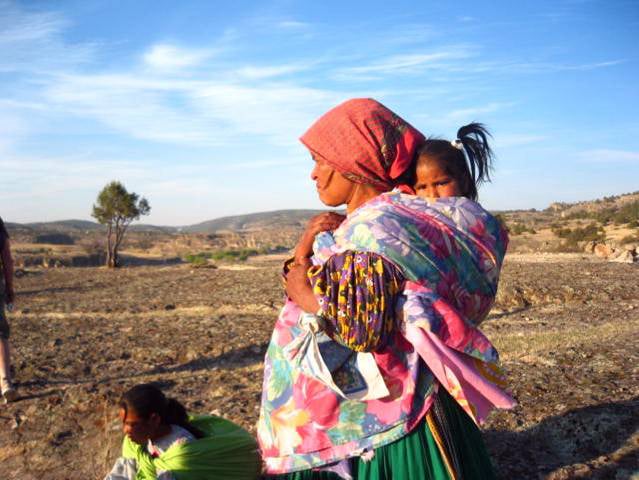
Case Study: Indigenous women in Mexico
by Mariah Grant Ciudad Juárez is a striking example of both the good and the bad that the economic opportunities inherent to urbanization can bring. This city of nearly 1.5 million inhabitants is situated on the Mexico side of the border with…
5 min read
- 11
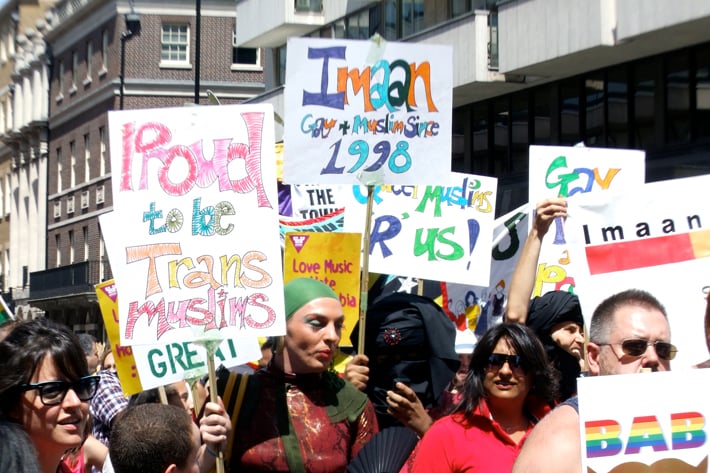
Sexual orientation and gender identity
by Peter Grant Across the world, lesbian, gay, bisexual or transgender (LGBT) people face discrimination, stigmatization and targeted violence as a result of their sexual orientation or gender identity. However, the challenges faced by those…
9 min read
- 12
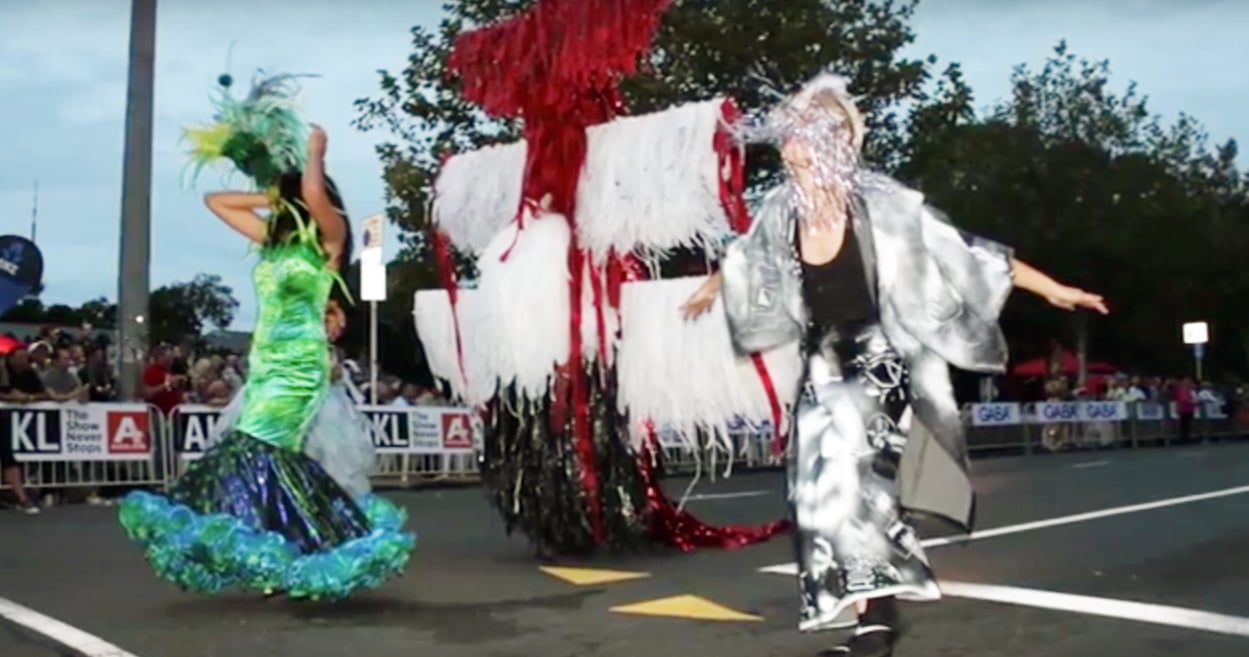
Film: The Manu Project in New Zealand
The Manu Project, jointly conceived by London-based friends and collaborators Lyall Hakaraia and Emma Eastwood, was initiated as a way to encourage queer indigenous and migrant youth to share their views on gender, identity and culture. Through…
1 min read
-
by Nora Ellen Groce
According to the World Health Organization (WHO), people with disabilities – that is, people with physical, sensory, intellectual or mental health disabilities – make up 15 per cent of the world’s population. Yet when attention is focused on indigenous or minority issues, the situation of those living with disabilities within those communities is rarely considered. Too often, members of indigenous and minority populations who live with a disability, and their families, find themselves struggling to meet the competing needs and challenges of their identity within often marginalized communities and the demands of living with a disability. People with disabilities in indigenous and minority communities represent a group often overlooked, yet who have much to contribute to their communities and to the broader society.
Background
In many ways, disability is a key cross-cutting issue that frequently is overlooked even by those who work on cross-cutting issues. Disability is considered – if it is considered at all – as a medical concern to be described and discussed within realms of clinical medical and public health. This ‘medical model’ has been replaced over the past 20 years, however, by an emerging ‘social model’ – the realization on the part of policy makers, organizations and advocates that the key barriers facing people with disabilities worldwide are not their health or rehabilitation needs, but poverty, social exclusion and injustice.
Indeed, the new UN Convention on the Rights of Persons with Disabilities, now signed by 160 countries, specially speaks to the broad nature of disability when it describes disability itself as ‘an evolving concept’ and states that ‘disability results from the interaction between persons with impairments and attitudinal and environmental barriers that hinder their full and effective participation in society on an equal basis with others’.
Disability never constitutes anyone’s full identity however – all people who are born or who become disabled are also members of other cultural and socio-economic groups. The intersectionality between disability and other groups that face discrimination has come under increased attention in recent years, but we still know relatively little about many aspects of living with a disability within groups that face poverty, prejudice and social marginalization.
Certainly within indigenous and minority communities, the issues faced by children and adults with disabilities – and their families – is of particular concern. Many of these communities already face disproportionate levels of poverty and are less likely to receive equal access to resources or services such as education or health, that are available to non-indigenous populations in the same community or country.
Here there is a compounding set of issues that makes the lives of people with disabilities of particular concern, both within and beyond the community. Many of these issues are interlinked. For example, even in very poor communities, people with disabilities and their households are more likely to live in poverty than their non-disabled neighbours. This has more to do with lack of access to resources throughout the life cycle – people with disabilities are less likely to attend school, be able to get a job, and are less likely to be permitted to participate freely in the social, economic and political life of their communities. In those indigenous and minority communities where members live in hard-to-reach remote rural areas or in urban slum communities, access becomes harder still.
Compounding this, in many traditional communities, there are beliefs about how and why certain children or adults become disabled that promote social isolation, stigma and discrimination against the individual and their family. It is important to note that such belief systems will differ by indigenous or minority group and by type of disability – and some traditions have positive and supportive attitudes towards disability. For example, in some traditional communities, children and adults who have epileptic seizures may be perceived as being in closer touch with ancestors, gods or the afterlife.
Moreover, in many indigenous or minority communities where there is great need, people with disabilities are often encouraged or told to wait to ask for or demand access to resources by members of their own communities. ‘We will get help for our disabled children,’ an elder chief of one Native American community told this author, ‘once our other children are provided for.’ What this attitude overlooks is that disability rights are inseparable from other human rights, and all children’s lives – including the lives of children with disabilities – are of equal value. Asking children with disabilities and their families to wait until an undefined point in the future as a contribution to the broader needs of an indigenous or minority community means that progress is delayed for all.
Nor is poverty alone an issue. Due to poverty, less access to health care, poor working conditions and gender-based violence, women are at higher risk of becoming disabled than men, and may make up as many as three-quarters of all those with disabilities in low- and middle-income countries. And as populations age, the number of people aged 60 and above living with disability grows. This growth is taking place in two distinct groups: people disabled at birth or in adulthood, familiar with disability, who, with improved medical care, are now surviving into older age; and people who become disabled as a result of illness or injury in old age. Members of indigenous and minority populations are at increased risk of becoming disabled as they age, due to poverty, lack of access to adequate medical care, housing or nutritious food, and violence in areas in which they live. For example, in the United States, African Americans are more likely to be disabled throughout the life cycle, with black/white differences peaking in midlife (50–69 years of age), and African Americans being between 1.5 to 2 times as likely to live with a disabilities as their white peers.
All these issues have specific implications when disability intersects with indigenous or minority community concerns. Lack of opportunity and destruction of traditional community beliefs and practices has led to high rates of alcohol abuse in a number of indigenous and minority communities, for instance, causing the routine birth of children with foetal alcohol syndrome (FAS), which leads to non-reversible and often significant developmental delays. In the United States, while the prevalence of children born with FAS will vary from tribal group to tribal group and within many tribal communities, ‘the prevalence of FAS in Alaska is 5.6 per 1,000 live births for American Indians/Alaska Natives, compared to 1.5 per 1,000 in the state overall.’
And of course, many issues related to disability can be compounded not just in one but in several domains. For example, an impoverished older LGBT (lesbian, gay, bisexual and transgender) woman from a rural indigenous or minority community who is disabled faces not one, but a series of challenges and barriers that have direct implications for her ability to live on a daily basis and plan for a future.
Into the future – key concerns and potential options
Rethinking disability – moving the issue from a medical concern to a human rights and international development issue – has been slow in coming. But within the past decade changes are beginning to occur rapidly for people with disabilities at both national and international levels. And these changes have direct implications for people with disabilities in indigenous and minority communities.
The Millennium Development Goals, written in 2000, unfortunately overlooked disability entirely – there was no mention of disability in any of the Goals, Targets or Indicators. Yet the United Nations (UN) Convention on the Rights of Persons with Disabilities, the first human rights treaty of the twenty-first century, which entered into force in 2008, has now established critical parameters for inclusion of persons with disabilities within all legislative and development efforts. The 160 countries which have currently signed or signed and ratified this Convention have recently or are now in the process of rewriting all their national laws and policies to comply with the Convention.
This new emphasis on ensuring rights for all people with disabilities is further reflected in the new Sustainable Development Goals, which implicitly, and in several Targets explicitly, includes people with disabilities throughout. This emphasis on ensuring inclusion for all is emphasized in the strapline for the Goals themselves: ‘Leave No One Behind’.
While all these efforts are admirable, there is concern that people with disabilities in indigenous and minority communities may benefit less, or not benefit at all. Poverty, marginalization and lack of information about disability rights within these communities, as well as competing priorities within indigenous and minority communities in combination with traditional beliefs and practices, may make accessing new rights and resources more difficult for disabled members of these populations.
Very significantly, a small but growing number of people with disabilities within indigenous and minority communities are now stepping forward themselves to have their concerns heard – both within and beyond their own communities. Indeed, national coalitions of indigenous and minority people with disabilities are increasing. For example, in Australia the First Peoples’ Disability Network, founded in 1999, is a national coalition of Aboriginal and Torres Strait Islanders with disabilities who advocate about indigenous and disability issues. Balancing both the concerns of indigenous communities and people with disabilities, as well as issues specifically concerning indigenous people with disabilities, such organizations are a distinctive voice on behalf of both indigenous and minority groups, and the disability rights community.
In summary, a growing body of research and advocacy tells us that when people with disabilities are able to participate fully and freely in their communities – and are able to have equal access to the support, inclusion and resources available – all members of the community benefit. All groups and advocates working within or on behalf of indigenous and minority communities must not forget to include these millions of children and adults in all the policy, programmes and advocacy work they undertake.
Many of these groups are mobilizing around these intersecting identities to subvert stereotypes and highlight injustices.
Photo: African American young people reading using braille. Credit: NASA HQ.
-
Dalits, long victim to a caste-based system of social hierarchy that regards them as ‘untouchables’, comprise around 17 per cent of India’s total population. While caste-based discrimination was outlawed in 1955, the social phenomenon of caste persists and is imparted through birth. As a result, Dalits still face severe hardship and exclusion from mainstream society, with prejudicial attitudes and practices underlying much of Indian society today.
Acting simultaneously as a social and physical condition, disability – which varies in form and severity, and may be present from birth or developed during the course of a person’s lifetime – is considerably more prevalent among Dalits than upper castes: 2.4 per cent compared to 1.8 per cent, according to one report. Dalits are also more likely to have severe forms of disabilities generally, and more specifically, to acquire them at a young age. This is due in part to the influence of factors connected to poorer living conditions, such as anemia, pneumonia and low levels of nutrition.
The intersection of disability with caste can compound the myriad issues faced by Dalits. Disabilities reinforce disadvantage linked to Dalit identity and its consequent deprivation of rights, opportunities, and resources. Dalit children, who already struggle to attend school due to having to physical distance, segregation and discriminatory treatment, face even greater difficulties accessing education when they have disabilities.
In rural areas, where the situation is particularly bleak, lack of basic skills gained through education restricts opportunities for vocational and other training leading to employment. Yet access to employment also depends on social capital, and persons with disabilities – and to an even greater extent those who are Dalits – suffer from stigmatization and negative stereotypes that cast them as unproductive and dependent. The low educational and employment status of Dalits with disabilities in turn increases the likelihood that their households, whose limited resources are already stretched, will face poorer living conditions and greater poverty.
Even natural disasters can be discriminatory in their impacts, affecting Dalits, particularly those with disabilities, disproportionately due to their settlements being situated in vulnerable locations such as rubbish dumps, river banks and other high-risk areas. Furthermore, the response of authorities to assist victims can reinforce this disparity through discrimination. In November 2015, for instance, after devastating floods swept through Tamil Nadu, hundreds of Dalit families who lost their homes and livelihoods found themselves neglected by government relief efforts. Differing starkly from the treatment of upper-caste families, many Dalits were not provided with adequate food, drinking water or emergency health support services, nor even received visits from officials to assess their losses and needs.
Dalit women and girls with disabilities, situated at the bottom of India’s social hierarchy, are especially vulnerable. They in many cases perform the most dangerous and degrading work, placing their health at greater risk, and suffer a constant threat of sexual violence from members of their own community as well as upper castes. Those with disabilities are especially vulnerable to abuse and exploitation. While the majority of cases go undocumented, a number of recently reported incidents highlight the severity of their situation. In January 2016, for example, a deaf-mute Dalit woman was gang-raped and thrown from a train in Uttar Pradesh, and at the beginning of February 2016 when a man was arrested for raping a deaf-mute Dalit girl in Berhampur, Odisha.
The vulnerability and marginalization faced by Dalits with disabilities is in part a reflection of inadequate government policies and programmes to protect their human rights. While positive efforts have been made to improve the situation of Dalits – through Constitutional amendment, legislation and monitoring bodies, job quotas, affirmative action in the public sector and education – there remains insufficient political will to adequately acknowledge and address discrimination against Dalits in India and work to abolish caste itself. As for persons with disabilities, there have been some recent signs of progress, with the Minister for Justice and Social Empowerment announcing in early 2016 that the Rights of Persons with Disabilities Bill had been drafted, which would help persons with disabilities derive greater benefits from welfare schemes.
But while a stronger rights framework for Dalits and persons with disabilities is urgently needed, this alone may not necessarily bring justice and equality for Dalits with disabilities, who may still find themselves marginalized. It is important therefore that the unique challenges of intersectionality for Dalits with disabilities are also recognized to ensure that they do not continue to be left behind.
Photo: Dalit mother and child in India. Credit: Thessaly La Force.
-
by Jasmin Qureshi
The rights of minority and indigenous children and young people are often not ensured or protected. They face barriers to education, for example, and lack basic health care in many parts of the world. Children are already particularly vulnerable in situations of poverty, conflict and other humanitarian emergencies, and are doubly so if they come from a minority or indigenous background.
Poverty and barriers to education
Minorities and indigenous communities are often some of the poorest in their countries, leaving many children living in impoverished conditions. This in turn limits their access to education. For example, in New Zealand, over 40 per cent of Pacific children are living in poverty. Poverty often forces minority and indigenous families to send their children to work or take care of young siblings rather than attend school.
Minority and indigenous girls face particular barriers to education. In some contexts, girls may experience forced marriage, which prevents them from completing their education. For example, in Mexico indigenous girls tend to marry between the ages of 13 and 16 in arrangements that sometimes involve the exchange of cash. Also, from childhood indigenous girls are expected to help their mothers: their ‘normal’ workday can last as long as 18 hours, leaving little time for education, which in many cases is unaffordable. This has resulted in a gender disparity with regard to education: 50 per cent of indigenous women have not completed primary school, versus 42 per cent of indigenous men.
In Burundi, there is low enrolment and high drop-out rates among Batwa girls in primary and secondary education. An MRG report in 2010 found that Batwa boys and girls from other ethnic groups are twice as likely to go to school as Batwa girls. Drop-out rates for Batwa girls are double those for Batwa boys. Factors contributing to Batwa girls’ lack of access to education include poverty, the attitude of Batwa parents towards the education of girls and early marriage.
Roma and other minority children in Europe are also discriminated against when accessing education. One high-profile case occurred in Sofades, a town in Thessaly, central Greece, where Roma children used to be segregated into a separate primary school. In 2013, the European Court of Human Rights in the case of Lavida and Others v. Greece ruled that this segregation constituted discrimination and a breach of the right to education. However, this was by no means an isolated case – it was the third European Court ruling on discrimination against Roma pupils in Greece.
Language policies and barriers can impact on the education of minority children and young people. For example in Tajikistan, the use of anything besides the majority Tajik language is discouraged and university applicants must be fluent in Tajik. For minority Uzbek communities, this can pose a barrier to education. Although schoolchildren study the Tajik language for two hours a day, for many rural Uzbeks this is not enough to master reading and writing.
In Namibia, Himba and San children are not allowed to wear traditional clothes and are not taught in their mother tongue. As a result, San and Himba lag behind in educational attainment in comparison with other groups: only 7 per cent of San children are enrolled at the junior secondary level, and less than 1 per cent in senior secondary schools. The semi-nomadic lifestyle of Himba also means that children are unable to attend mainstream schools.
Minority and indigenous children can face discrimination at school from pupils or teachers, which leads to higher drop-out rates for minority and indigenous children. For example, in Afghanistan there have been reports that children from Hindu and Sikh communities were forced to drop out of school because of bullying. Minority and indigenous students may find themselves ostracized not only by their peers, but also by teachers responsible for their care.
Minority and indigenous youth
Lack of access to quality education for minority and indigenous children continues to have a negative impact later in their lives. This can lead to lower levels of employment for young people and other serious consequences.
In the United States, sub-standard education for poor students attending schools in less affluent neighbourhoods, as is the case for many African American children, has a long-term impact on their future economic well-being. Furthermore, limited educational opportunities for African American students have been associated with a phenomenon known as the ‘school-to-prison pipeline’. The increase of police officers inside schools has led to increased contact with the criminal justice system, and infractions which were previously dealt with by teachers and school administrators now lead to fines and even incarceration in juvenile facilities.
This experience has long-term ramifications, as children and adolescents sent to juvenile facilities are 37 times more likely to be arrested again as adults. Students with criminal records are further marginalized in some school districts through the use of alternative schools, which segregate them from the general student population. The discrimination faced by African Americans within the school system is therefore linked to and mirrored by their disproportionate incarceration rates in the country’s prisons, with African Americans accounting for 41 per cent of those imprisoned despite making up just 13 per cent of the national population.
Similarly, for Brazil’s Afro-descendant community there is massive inequality in young people’s access to education and other services. With little opportunity to improve their lives, young Afro-Brazilian men face a high risk of being drawn into drug gangs and violence.
Health
Minority and indigenous children suffer higher levels of ill health and poorer quality of care across the globe. There are also insufficient numbers of health centres, including mother and child health services and tuberculosis clinics, in minority areas.
International studies show that indigenous children have worse health indicators than non-indigenous children in almost every context. They suffer malnutrition and childhood diseases at rates higher than non-indigenous children, as well as greater levels of infant mortality. In the Republic of Congo, mortality from measles has been estimated to be five times higher in Ba’Aka children than neighbouring Bantu communities. Similarly, in Yunnan Province, China, indigenous infant mortality rates have been estimated at almost 78 per 1,000 live births, compared to an average of just under 27 per 1,000 at a national level and under 54 per 1,000 for non-indigenous populations in Yunnan.
In part, these indicators reflect extreme levels of poverty, which are often especially acute among minority and indigenous populations. In India, for instance, Dalit girls are more likely to have stunted growth or be underweight, and child malnutrition is about 14–20 per cent higher for Scheduled Castes and Scheduled Tribes and has been declining at a slower rate than for the rest of the population over the last 15 years.
However, health problems can also arise as a direct result of state policies and development programmes – even those supposedly bringing economic benefits to a country or region. In Sarawak, for example, in the Malaysian part of Borneo, logging operations and oil palm plantations have encroached on the indigenous Penan people’s land. As a result, the community has become more impoverished and are suffering from poor health, with Penan children increasingly afflicted by diarrhoea and influenza.
Mental health problems and suicide rates among indigenous young people can also be higher than those in the non-indigenous population. This is often linked to ‘acculturation’, particularly if the indigenous community has been forced into urban settings, where urban indigenous children and their families lose vital connections to their communities’ traditional lands and cultures, and often experience the worst situations of urban marginalization, discrimination and poverty.
Minority and indigenous girls
Minority and indigenous girls are discriminated against because of their sex and because they are members of a marginalized group. While the difficulties they experience in part reflect their community identity, these challenges are further reinforced by gender inequalities which further marginalize them. For example, girls from minority and indigenous communities often have less access to education and experience higher levels of marginalization at school than either males within their community or girls from majority populations.
They are particularly vulnerable to trafficking, rape, domestic violence and other forms of abuse. For example, in Australia, indigenous women and girls face the highest levels of violence of any ethnic group in the country. This violence, directly or indirectly, also limits their freedom of movement and access to benefits such as employment, education and health care, not to mention participation in political and civic life. While minority and indigenous girls frequently face violence from majority populations, abuse and inequalities are also experienced within their own communities. For example, harmful cultural and religious practices, such as female genital mutilation (FGM) in pastoralist communities in Africa, can have lasting impacts on their physical and mental well-being.
Conclusion
Minority and indigenous children and young people, particularly girls and young women, are often denied equal access to education and health care, as well as employment later on in life. Due to intersectional discrimination on account of their age and identity, they are frequently among the most vulnerable populations, and therefore any assistance targeting this group must be designed sensitively to reflect their unique situation. Any programmes and policies designed to protect children’s and young people’s rights must not only treat them as people with agency, but also ensure that the particular perspectives of members of minority or indigenous communities are taken into account.
Photo: Roma young women in Romania. Credit: World Bank Photo Collection.
-
by Rebecca Marlin
Indigenous Endorois had inhabited Lake Bogoria for centuries when, in the 1970s, the Kenyan government forcibly removed them from their ancestral land. Their eviction brought to an end a unique way of life rich with culture and tradition, and they have been advocating for the rightful return of their land ever since. Despite a 2010 ruling by the African Commission on Human and Peoples’ Rights in their favour, secured with MRG’s support, the government has yet to comply.
In October 2014, MRG spent three weeks visiting the areas near Lake Bogoria where the community is now based, and interviewed nearly 500 Endorois about their lives. Many Endorois described how, while living at Lake Bogoria, they engaged in a variety of cultural and religious activities, such as worshipping at the graves of their ancestors, collecting herbs for medicinal purposes and practising initiation ceremonies. As pastoralists, they followed the natural grazing patterns of their livestock, and maintained beehives to collect honey.
In the 40 years since their displacement, however, the Endorois have been struggling to maintain their traditions, while living in marginal areas with extremely limited access to health care, basic infrastructure and education. As a result, younger generations have made efforts to better their lives by heading to cities such as Eldoret, Nakuru and Nairobi. Their reasons for moving are varied: some are in search of higher education, others are looking for employment, while many are also seeking to escape frequent outbreaks of violence as a result of cattle-rustling carried out by neighbouring communities.
Some Endorois youth, frustrated by their marginalized status, also leave in the hope of securing greater recognition within Kenyan society. One Endorois attending law school in Nairobi discussed the numerous challenges facing young Endorois, such as ongoing government repression, exclusion from local job recruitment, leadership problems and their continued stigmatization. He explained that these factors ‘have caused the youth to move away from Endorois land in order to disassociate from the community and be given greater consideration by Kenyan leaders’.
Migration to urban areas has produced benefits and challenges for Endorois families. On the positive side, it has given young Endorois access to higher education and frequently the skills they gain may be used to improve the lives of their community as well. Endorois who find employment in cities are also able to send some of their wages home to their families, where they are desperately needed.
At the same time, Endorois who move to larger cities report that they face discrimination based on their minority status and often are only able to find employment in non-permanent or contract-based jobs, usually in private security or domestic work. Endorois employed in this way are rarely given time off by their employers to visit their families, who often can only be reached after a long journey through remote and potentially dangerous areas. The result is that many young Endorois end up not returning home for extended periods, and find themselves increasingly out of touch with day-to-day life within the Endorois community.
Endorois tradition is passed down from elders to youth, with frequent interaction between the two groups. With more and more from the younger generation leaving their rural communities, however, this chain has been broken. Almost all Endorois surveyed, both elders and youth, reported that they felt the younger generation were losing their culture. One Endorois woman remarked that it was sad to see so many Endorois leaving at a young age for cities, because ‘this is the time when the younger generation is expected to learn how ceremonies are conducted. Generations to come will lose the unique Endorois culture and livelihood as they are continuously exposed to urban culture.’ Endorois also find that it is frequently those who might become Endorois leaders who are most likely to leave. ‘The community is affected when the youth move out, leaving them without energetic and visionary people,’ said one Endorois man. ‘Those with ideas do not share them with the community and the community is left behind.’
Endorois are therefore struggling to develop a way to maintain their traditions in the face of the strong draw of the cities, but many feel defeated. A majority of those surveyed believed that the only way to ensure Endorois youth remained in the community was to regain access to their territory at Lake Bogoria, where they could fully reinstate their traditions and offer a more attractive future to the next generation. Despite the government’s obligation to restore their land, return remains a distant reality for Kenya’s Endorois, who must now struggle with the loss not only of their culture, livelihoods and traditions, but their youth as well.
This case study was originally published in MRG’s State of the World’s Minorities and Indigenous Peoples 2015.
Photo: Lake Bogoria, Kenya. Credit: MRG.
-
by Jasmin Qureshi
Across the globe, older people face discrimination in all areas of their lives. Whether they are accessing health care, seeking employment, or protecting their right to their land, older people are likely to experience discrimination because of their age.
‘Sometimes age discrimination is subtle: lack of transportation may prevent older people from taking part in social activities, which is a right everyone shares. At the other end of the scale, there are appalling cases of neglect and violence against older people.’ (HelpAge International)
If an older person is also a member of a minority or indigenous community then they are particularly marginalized and vulnerable. They are likely to experience intersectional discrimination on the basis of their age as well as their ethnic, linguistic or religious background, or indigenous status.
Minority older people are often among the poorest members of their countries. In the US, for example, poverty rates vary significantly by ethnicity among older people (aged 65 and above): 17.1 per cent of older black people and 18.7 per cent of older Hispanic people are living in poverty, compared with 6.8 per cent of older white people. This is compounded by the fact older people face discrimination at work or when seeking employment, even in countries where laws are in place to prevent this.
Older people from minority or indigenous communities are also particularly vulnerable during conflict or post-conflict situations, or when natural disasters strike. For example, after the ethnic conflict in Osh, Kyrgyzstan, in June 2010, many older people were left in financial hardship: HelpAge International research conducted in the wake of the violence found that 37 per cent of older people surveyed reported having no money. However, when disaggregated by ethnicity the findings suggested an even more acute situation among the Uzbek minority, with 55 per cent of older people from their community reporting a lack of money, compared to 20 per cent of majority older Kyrgyz people. A high percentage of older Uzbek people also said they were unable to procure essential medical supplies in the aftermath of the conflict.
At the same time, older people are a key economic resource often overlooked by governments and make substantial contributions to the well-being of their families and communities. Older people in minority and indigenous communities play an important role as respected leaders and human rights activists. They help bring communities together and provide support to younger members, who may need extra support when dealing with the sense of marginalization that can come with being part of a minority or indigenous people.
Discrimination in health care
The world’s population is ageing as people are living longer. This means access to appropriate health and social care is essential to ensure that older people can enjoy healthy, active lives.
Yet older members of minority and indigenous communities experience barriers to accessing the health care they need and are entitled to. Language barriers are one of the main issues when trying to obtain health care for minority groups. Research by the Fundamental Rights Agency of the European Union on inequalities in access to health care found that language is a key barrier, particularly for minority older persons and women, who interact less with mainstream society.
Lack of consideration among health professionals of diverse cultural practices also prevents some groups from accessing health services. Muslim women living in Europe, for example, can feel uncomfortable with male medical staff or interpreters. In Thailand, Malay Muslims encounter problems in accessing health care. These include communication problems for elderly Muslims in public hospitals and the failure of some health care centres to accommodate Muslim customs.
The UN Committee on Economic, Social and Cultural Rights has outlined minimum standards for delivering on the right to health. These stipulate that health services must be provided in a manner that is compatible with cultural and linguistic rights, for example, by providing services in local languages and sensitive to different cultural practices. Charities working on older peoples’ rights have also called for culturally responsive care for older people from ethnic minority backgrounds – such as providing interpreters or providing appropriate food according to the person’s religious background.
Some minority groups are particularly prone to depression in older age. This could be due to feelings of isolation and loneliness, because of their status as a minority as well as their age. HelpAge International has reported on the devastating effects of what it terms ‘cumulative age discrimination’ – the cumulative impact of a lifetime of discrimination for older people. Minority people may have experienced discrimination all their lives, which has serious consequences in old age.
Again, older people belonging to minority and indigenous communities are likely to face barriers to gaining help for mental health issues, for example due to stigma surrounding mental health illnesses such as dementia and depression, or because of language barriers and not knowing where to go for help.
On a more positive note, older people play an important role in traditional health and the collective well-being of indigenous communities. For example, in many indigenous cultures in Latin America, an elderly indigenous woman in the community is chosen each year to become the Pachamama (or Earth Mother), advising the whole community and guiding them towards a caring relationship with the environment. In the US, it has been noted that elders play a key role in preventing health problems and improving well-being among indigenous communities. There are high suicide rates among Native American communities, particularly of young people, driven by socio-economic factors such as high unemployment rates, land dispossession, marginalization, language loss, cultural disintegration and exclusion. However, family and clan relationships, reverence for elders and a deeply held spiritual life are among the key protective factors for young people’s well-being.
Land rights and housing
The land rights of older people from minorities and indigenous communities can be particularly insecure, especially in situations of conflict or land-grabbing. For many older people from minority and indigenous communities, losing their land also means the loss of their main source of income as many are occupied in work such as agriculture that is tied to their land.
For example, in Kenya, the government evictions of indigenous Ogiek from their ancestral land in the Mau Forest and around Mount Elgon has left entire communities homeless or without proper housing. This particularly affects older people, who are forced to sleep on the bare ground and are unable to access health care. Similarly, in Europe, forced evictions of Roma communities have left older people particularly vulnerable.
Being separated from traditional lands comes with many negative impacts and complications for older minority and indigenous people. During the long conflict in northern Uganda, many Acholi people lived in IDP (internally displaced persons) camps for as long as 20 years. During this time, people were separated from their land for protracted periods. When the camps were disbanded and people began to return to their land, customary rules for land tenure meant there was confusion over who owned different areas of land. In such a context, the land rights of those with the least power – widows, the disabled, the elderly – were very insecure.
Being separated from traditional lands also affects older people’s role in passing on traditional knowledge and customs to younger generations. In addition, the process of urbanization in many parts of the world has resulted in assimilation and loss of cultural knowledge systems. In Tanzania, for example, Maasai women who practise traditional medicine have found it difficult to continue upon relocation to cities, where medical boards and city authorities demand a licence and a permanent location for their work, amounting to largely unaffordable expenses.
Conclusion
Older people from minority or indigenous communities are likely to face intersectional discrimination with regard to health, work, land and other human rights issues in many parts of the world. Some non-governmental organizations are calling for an international convention to protect older people’s rights as well as the collection of disaggregated data with regard to age. Any such actions must also take into account the situation of older people belonging to minorities and indigenous peoples, while their0 many positive contributions must not be forgotten.
Older people in minority and indigenous communities play an important role as respected leaders and human rights activists.
Photo: Pastoralist elders in Cameroon. Credit: Emma Eastwood/MRG.
-
Older people from minority and indigenous backgrounds are well respected leaders and often credited with improving the well-being of their families and communities. These photos tell some of their stories.
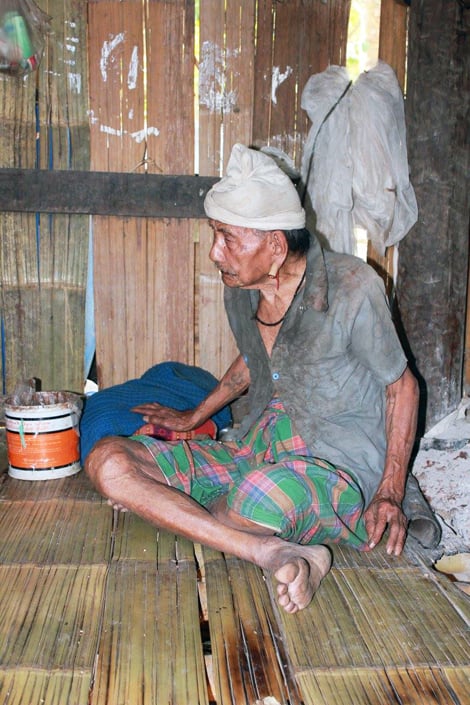
Kee Or, 104-year-old spiritual leader in a Karen village in Thailand. In October 2015, Kee Or brought charges against the former chief of Kaeng Krachan National Park in Phetchaburi, accusing him of burning down Karen villages. The community leader also led a petition by Karen people asking for the right to continue living on their land. Credit: Emma Eastwood/MRG. 
Pastoralist elders in Cameroon. In the centre is the traditional Mbororo leader of the wider area, flanked by his closest advisors. Credit: Emma Eastwood/MRG. 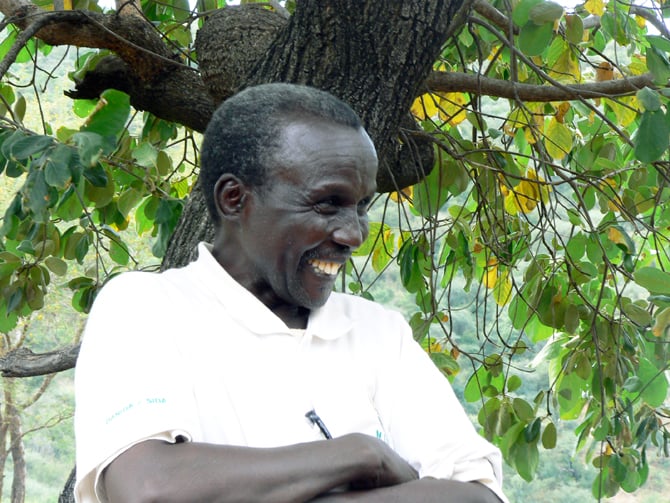
Richard Yegon is an Endorois elder from the village of Kapkuikui in Kenya. Endorois elders take an active role in counseling and guiding the community and help to resolve conflicts over land and other resources such as water. Credit: Emma Eastwood/MRG. 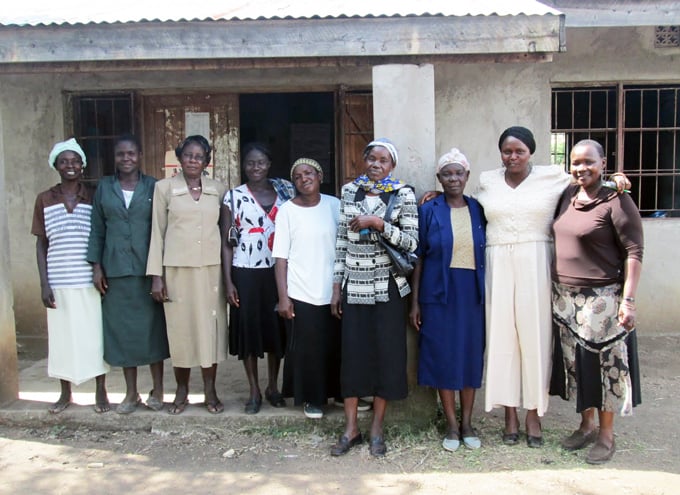
Suba woman elders in Kenya. The Suba Elders Council for Development and Culture promotes women’s leadership by including women as general members and in its executive leadership. Laura A Young. 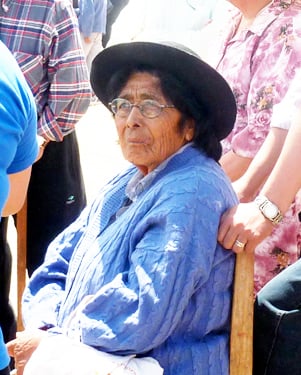
In indigenous cultures in Latin America, an elderly woman in the community is chosen each year to become the Pachamama (or Earth Mother), advising the whole community and guiding them towards a caring relationship with the environment. Photo shows a Pachamama in Argentina. Credit: Carolyn Stephens. 
Pauline Kinyarkyo, a Maasai founder of Kenyan-based community organization Enaitoti Naretu Olmaa meaning ‘feeding, helping the Maasai community’. Pauline is an advocate against female genital mutilation. Credit: MRG. -
by Electra Babouri
Socio-economic inequality is determined by a complex range of factors, manifested in many interconnected spheres, such as livelihoods, income, material assets, access to social goods, influence and participation. While state policies have often focused heavily on national averages and broadly defined groups, to address the specific disparities experienced by those most marginalized – including many minority and indigenous communities – it is necessary to look at how identities, social norms and structural factors intersect to create distinct patterns of experience. For many minority and indigenous communities, this interconnectedness forms the basis of their well-being: if disadvantage is experienced in one sphere, other areas are also likely to be affected.
Livelihoods
Access to decent employment, as well as traditional non-market and subsistence-based economies, are essential for minorities and indigenous peoples to achieve socioeconomic equality. Without this, human agency and social connections are weakened, leading to many social problems. Yet these sources of livelihood are often vulnerable to environmental change and other pressures, including those caused by development initiatives by governments or corporations.
For example, there are approximately 200 million pastoralists worldwide, including minority and indigenous communities such as Tuareg in the Sahara and Maasai in Eastern Africa. Their livelihoods are often restricted or halted due to a range of factors, including climate change, sedentarization, appropriation of land and insensitively designed conservation projects (United Nations, State of the World’s Indigenous Peoples, New York, UN, 2009). Representatives of pastoralist communities have highlighted how this impacts them in multiple ways, undermining their culture, dignity and spirituality, as well as their subsistence base and access to markets.
Livelihoods can themselves be a source of discrimination and stigma. For example, in Thailand’s upland forests Akha, Hmong, Lahu and Lisu communities engage in swidden agriculture – a practice frequently seen by outsiders as ‘uncivilized’ compared to the settled wet rice cultivation of the lowlands (Kabeer, N., ‘The challenges of intersecting inequality’, Maitreyee, 24, July 2014). Disregard for traditional livelihoods and appropriation of land for large-scale development or extraction schemes has forced hundreds of thousands of persons belonging to minority and indigenous communities to migrate or resettle elsewhere, in many cases pushed by resource depletion, enforced state policies and targeted violence. For example, in Laos and Vietnam large-scale dam projects have led to the relocation of entire communities en masse, often leading to their disintegration due to a lack of economic opportunities and friction with other residents over limited resources such as land.
Minorities and indigenous peoples frequently experience low income levels due to discrimination and lack of skills deemed commercially useful, such as those used by women to make traditional arts and crafts that have been replaced by market goods. For example, in Bolivia, 67 per cent of the unskilled workers are reportedly indigenous, while only 4 per cent of indigenous occupy high-level positions, leading to pronounced income disparities between indigenous and mestizo workers.
For minority women, opportunities to carry out chosen livelihoods and decent work are frequently constrained. For example, of the approximately 100 million Dalit women in India, the majority have restricted access to basic services, resources and public places, with many forced into unsafe and poorly paid work, such as manual scavenging, to survive. In addition, at a national level, a disproportionate percentage of ‘single’ women – meaning widowed, separated, divorced or unmarried – are Dalit: when they separate most get dispossessed, and when widowed their inheritance is typically handed to their sons or male relatives on whom they then have to depend.
Unfortunately, existing socio-economic policies fail to address the complex nature of the disadvantage created by the convergence of caste, gender and marital status. For instance, Dalit women often struggle to access available support in accessing work opportunities: as women and members of a minority, they are frequently sidelined by both majority women and members of their own community. For instance, when they apply for the scheduled caste quota they may find themselves directed to apply instead for the women’s quota, and vice versa.
Access to services
As with livelihoods, accessing services – including education, health care, water supply and sanitation – can promote greater equality and better life opportunities. However, minorities and indigenous peoples commonly inhabit locations that are underserved by basic services. In Latin America, for example, it is estimated that around 50 per cent of indigenous peoples reside in isolated rural regions with limited access to basic services or infrastructure. In addition, other barriers to accessing these services occur due to discrimination as a result of cultural norms, stereotypes, language and related factors.
Health care, which can help prevent high absenteeism and low productivity at school and work, is one area where lack of access can undermine development and well-being. An example of this is the ‘San of southern Africa [who] face severe discriminatory attitudes from health workers in ways that impede on both access and quality to health services’. Discrimination can be experienced within communities, too: for instance, in the Great Lakes region of Africa, Batwa men decide if their daughters are sent to school.
Socio-economic inequality can be driven by a vicious cycle across generations. For example, while education can help improve life outcomes, if it cannot be accessed or the experience itself is alienating, then children are likely to find themselves in a similar position to their parents, with limited prospects. This is highlighted by how access to better education is often determined by where one lives, which in turn is linked to a family’s socio-economic background. For example, 27 per cent of African American youth grow up in severely disadvantaged neighbourhoods, compared to around 1 per cent of non-Hispanic White youth, exposing them to ‘a worse education both in terms of fewer years of schooling and poorer quality of schooling’ and, in the long term, leading to ‘fewer opportunities for employment and income’.
Moreover, children from poor families are often sent to work, thus missing out on school. In Guatemala, it is estimated that 65 per cent of domestic workers are indigenous girls and adolescents from ‘impoverished families who often send their young female members to towns and cities, where they work an average of 14 hours per day and are often at the risk of physical and psychological abuse’.
Migration, participation and citizenship
Migration too can often be a by-product of socio-economic inequality, highlighting how intersectional inequality is not always static. Millions of people migrate each year, both within and beyond borders, predominantly so they can survive and improve their lives. Often the mere process of migration creates new minorities and disadvantages: migrants typically face barriers in accessing services, are frequently able to find work only in the informal sector and face restrictive immigration policies which further entrench divisions in terms of ethnicity, nationality and gender. For example, while ‘20 per cent of European Union natives are at risk of poverty or exclusion, the proportion is 35 per cent among those born outside the European Union’ – a situation that can be further exacerbated by gender discrimination.
Socio-economic inequality is further experienced by minorities and indigenous peoples due to lack of voice and under-representation in the public sphere, with the result that their perspectives, priorities and needs often remain invisible. This, in turn, further hampers their access to resources and opportunities to meet their full potential. For example, in Thailand an estimated 600,000 people belonging to indigenous and minority communities are currently deemed to be stateless, leaving them without the necessary documentation such as birth certificates to access services, exercise their basic civic rights or access credit.
In conclusion, the inequalities experienced by minority and indigenous communities are not only informed by a general lack of resources or local deprivation, but also distinct patterns of discrimination. As a result, conventional poverty reduction measures alone may not be sufficient to address these issues without a more comprehensive programme of policy and social reform that includes, among other areas, recognition of land rights, respect for traditional culture and targeted investments in basic services such as health and education for minority and indigenous communities.
Photo: Indigenous people in Bolivia. Credit: Szymon Kochański.
-
by Hanna Hindstrom
Four years ago, a typhoon struck the northern Filipino city of Baguio. The storm ruptured the walls of the city’s mounting garbage dump, sending hundreds of tonnes of urban waste cascading into the streets. The landslide flattened several houses and killed two young children. The tragedy was a wake-up call for Geraldine Cacho, an Igorot woman and rural farmer who first migrated to Baguio to pursue university studies. ‘Why would garbage become a killer? Why would it become an issue?’ she asked herself at the time.
Many Igorot migrants are accustomed to the practice of ayyew – known as sayang in Filipino – an indigenous concept of recycling and reusing all forms of waste. For example, biodegradable waste would be transformed into fertilizers using vermiculture, while plastic bottles and old clothes may be recycled into household containers or rugs.
As residents dump some 300 tonnes of garbage every day, recycling not only offers a source of livelihood to Baguio’s indigenous population but also provides the city with an effective form of waste management. ‘Using ayyew as a culture of managing waste would lessen garbage and help solve the city’s huge garbage problem,’ she says. ‘As an activist organizer, I knew there has to be a way. A mass movement is needed to help solve the problem, if not eliminate it.’
After attending a training programme organized by the NGO Tebtebba, Cacho set up a vermibed in her kitchen. At first she faced resistance from her landlady, who described the compost worms as ‘unsanitary’. She confiscated Cacho’s worms and discarded them in a smelly open-pit garbage dump in her backyard. ‘It was however a blessing because after some weeks, we noticed that the open pit was not smelly anymore, and the neighbours stopped complaining of its stench,’ she says. She then explained to the landlady how vermiculture works and helped her plant onions, eggplants and cabbage in her back garden using compost.
Cacho is now working with the Cordillera Women’s Education and Research Centre (CWEARC) to promote vermiculture practices in Baguio. CWEARC is supporting over 100 indigenous women to establish urban vegetable gardens with the help of recycled waste. The idea is to simultaneously boost the socio-economic status of indigenous women while combatting Baguio’s burgeoning waste problem. The women are all migrants from rural areas who often struggle to earn their living as street vendors or backyard hog raisers. By working as a collective, the women harness another indigenous concept, known as ubbo or mutually beneficial labour.
According to the UN, indigenous migrants make up 60 per cent of the city’s population and more than half of them live in poverty. Indigenous women are particularly marginalized and are usually excluded from discussions about urban planning in Baguio. But now they have a stronger voice in the community. ‘The project increased the capacity of indigenous women on project management, leadership, economic empowerment, and strengthened their organization,’ says Lucille Lumas-i from CWEARC.
Even the government has responded positively to the project. ‘In communities where practitioners were located, there is a decrease in the volume of waste being hauled by the city government,’ added Lumas-i. ‘At the community level, Barangay [ward] officials are very supportive of the project and some have adopted the concept in their community waste management programme.’ Cacho now has a blooming urban garden, studded with ginger, corn, squash and sweet potatoes. It reminds her of her family’s farm in the countryside. ‘The growth was very visible,’ she says, ‘like magic.’
Photo: Igorot father and child in The Philippines. Credit: Woody Wood.
-
by Farah Mihlar
Minority and indigenous women face a unique set of challenges on account of their gender and community status, a form of intersectional discrimination that is often particularly difficult to address. As neither men within the same identity group or women from the majority community are likely to experience the same barriers, the situation of minority and indigenous women can be especially isolating and difficult to respond to, pushing them further into disadvantage and deprivation.
Access to employment
This discrimination takes many forms and occurs at different levels – within the community, among wider society and at the level of official policy. For instance, it may be institutional: an employer may stipulate certain requirements that favour men and prevent women, particularly those from minorities, from applying for a job. The imposition of a dress code, for example, could specifically prevent women from certain identity groups from applying, such as a Muslim woman who wears a hijab or headscarf. It can also be structural, where state policies, systems and rules work to sideline minority women. Immigration laws in some states can discriminate against particular groups of people, and in many cases they are likely to specifically disadvantage the women in those groups.
Female migrant workers in the Middle East and East Asia face specific forms of gender violence and have no protection in their host countries. Additionally, they are discriminated against based on their national identity and their gender, and are likely to receive lower salaries, trapping them further in cycles of poverty. In Malaysia, while female migrant workers generally are at considerable risk of exploitation, some ethnicities are particularly marginalized. Indonesian maids, for example, are likely to be paid half of what their Filipino counterparts earn due to popular racist stereotypes about them.
Health
Similarly, discriminatory health policies which deny access to services to minority and indigenous communities can affect women in distinct ways. As the Israeli government refuses to recognize a number of Arab Bedouin villages in the Negev, there are virtually no health facilities available to people who live in them. However, in some instances discrimination is not only created by neglect and exclusion but can also be the direct result of state policies specifically targeting women from minority or indigenous communities. In the Czech Republic, the practice of sterilization of Roma women was embedded in communist ideology that sought to target the fertility of women deemed ‘undesirables’ by the state. Though the practice has been declared illegal and is no longer carried out, the fight for compensation for victims has been protracted.
Justice
Beyond government policy, intersectional discrimination can also extend to the justice system, preventing minority and indigenous women from seeking redress for human rights violations. While in many countries women face stark inequalities and obstructions when dealing with police or the judiciary, the situation is even more challenging when exacerbated by hierarchies such as caste. In India, for instance, a 2006 survey of 500 Dalit women who had experienced violence found that 40.2 per cent did not attempt to seek any type of legal redress out of fear or communal pressure, another 26.5 per cent were blocked in their attempt to seek redress and a further 17.4 per cent were obstructed from obtaining justice by police. As a result, less than 1 per cent of cases led to the perpetrators being convicted in court.
Sexual violence
Intersectional discrimination can also be targeted towards women from certain identity groups. In situations of conflict minority women can be targeted for rape and other forms of sexual violence. Cases of women being targeted for sexual attacks during conflict have been reported from a number of different countries, including Bosnia, Columbia, East Timor, Rwanda, Kosovo and Sri Lanka. Rape and other forms of violence are now internationally recognized as forms of genocide. Prior to attacks, sexualized propaganda can be used, as it was in Rwanda, to incite attacks on minority women. In highly militarized and post-conflict situations, such as Sri Lanka in the immediate aftermath of the armed conflict, minority women continue to be vulnerable to sexual assault and may find themselves forced to engage in sex work to access resources.
A central part of the problem is that, while one aspect of discrimination may be recognized and steps taken to alleviate its effects, the other dimension may be overlooked – meaning that the complex issues facing minority women specifically may not be addressed by general gender or community-based interventions. Violence against women, for instance, is generally recognized as a form of gender-based discrimination, but the manner in which minority women may be especially vulnerable is not often noted. In Uganda’s Batwa community, women are targeted for rape and sexual violence because of a popular belief that having sex with a Batwa women can cure particular types of illness. This particular case of gender-based violence is specific to the identity of the woman.
Trafficking in women, while generally studied and dealt with through the lens of gender discrimination, is also often closely tied to minority or indigenous status. Victims from these communities typically face higher levels of poverty and are more likely to be affected by conflict, making them easy targets for traffickers. Similarly, while immigration laws and national security legislation are frequently discussed in terms of racial, ethnic or religious discrimination, the gender dimensions of these policies can also be very significant. While stop and search operations can be seen as discriminatory towards certain identity groups, women who wear a headscarf or other visible signs of their identity can be more readily targeted and subjected to other forms of abuse, such as sexual assault, while these are carried out.
Conclusion
The failure to understand this form of intersectionality is a major barrier to the development of effective solutions for minority and indigenous women. Part of the challenge in dealing with this issue at the state and international levels is that there is a dearth of information on the extent of the problem, with little in the way of disaggregated data. Furthermore, stigmatization of minority women also works to obscure, and even reinforce, discrimination. In the British media, for instance, Muslim women are frequently portrayed as being oppressed and ‘helpless’ victims of patriarchal repression. Yet the fallout from this simplistic representation is often increased hostility towards the Muslim community, with women bearing the brunt of these attacks.
Changes to laws and policy, and the strict implementation of existing anti-discrimination legislation is essential to combat intersectional discrimination. This requires political will, social awareness and education, among other factors. To address these issues properly, however, there must also be a much better understanding of the many ways that different aspects of intersectionality affect the everyday lives of minority women. The effects of intersectional discrimination can be complex and long-standing, and addressing these issues often requires a holistic, far-reaching response.
For example, though retention in education from primary to secondary level is generally low among pastoralist communities in East Africa, girls within this group are even less likely to stay in school. While pastoralist boys may have to leave education for various reasons, girls in the community face added challenges that further narrow their chances of a full education. Besides early marriage, girls may also be taken out of school because the distance to travel is too far and it is dangerous for them, or because their education may be seen as less important.
In summary, then, to achieve better outcomes for girls in minority and indigenous communities, a whole range of social and cultural issues need to be addressed. Legislation against intersectional discrimination alone is not always sufficient, and a much more comprehensive framework is needed to respond to the multiple ways in which minority and minority women can be affected by intersectional discrimination. An essential first step to achieve this is a greater understanding of these challenges, and a recognition that conventional anti-discrimination measures may not reach those groups who, like minority and indigenous women, face intersectional forms of discrimination.
Photo: Bedouin woman in Israel. Credit: Farah Mihlar
-
by Mariah Grant
Ciudad Juárez is a striking example of both the good and the bad that the economic opportunities inherent to urbanization can bring. This city of nearly 1.5 million inhabitants is situated on the Mexico side of the border with the United States, directly opposite its sister-city, El Paso, Texas. Only the parched Rio Grande, contained by concrete channels, divides these two urban centres. It is this strategic location, nestled within a valley surrounded by harsh desert and mountainous terrain, which has allowed Ciudad Juárez to develop rapidly as an epicentre of commerce through the installation of a booming manufacturing industry, known locally as ‘maquiladoras’.
Since its foundation, originally under the name of Paso del Norte, by the Spanish Fray Garcia de San Francisco in 1659, the city’s population has been largely made up of Spanish-speaking ethnic mestizos who predominantly practise Roman Catholicism. Today, the majority language, ethnic and religious make-up of the city’s residents remains the same. However, the growth of the maquiladoras over the past three decades, as well as displacement from the land and a decrease in livelihood opportunities in rural areas, has helped drive migration among indigenous communities to the city. This has driven rapid urban growth and led to a diversity of minority groups, with different ethnic, linguistic, cultural and religious backgrounds, living and accessing the formal and informal labour markets that have emerged in Ciudad Juárez.
Yet, as noted, the economic advances that took off in the 1990s in Ciudad Juárez did not lead to improvements only. As the city grew, so too did a large number of slums and along with them higher rates of poverty as well as crime. Additionally, the strategic position of Ciudad Juárez not only attracted manufacturing enterprises but also drug cartels and organized crime syndicates. The explosion of the drug trade within the city and across the border, fostered by widespread police and political corruption, meant that by 2009 Ciudad Juárez had become the ‘murder capital of the world’. In that year, the homicide rate reached 130 for every 100,000 inhabitants and in 2010 the city reached a disturbing record with the highest number of murders – 3,622 – in its history. As a result, the more socially and economically mobile residents left, many seeking refuge across the border in El Paso. The city’s indigenous population, however, was largely left behind. Additionally, during this period of unprecedented violence, women were targeted specifically based on their gender, which became widely identified as femicide.
But while the official homicide rate has since declined dramatically, various human rights and women’s rights groups have argued that official statistics fail to capture the true number of women still murdered and disappeared in Ciudad Juárez. Police investigations into such cases remain inadequate, resulting in impunity for the perpetrators and an unrealistic understanding of the scope of the issue. Furthermore, while the violence that enveloped Ciudad Juárez in the past resulted in higher murder rates among men, these groups state that, despite lower overall homicide levels, women continue to endure high levels of violence, including disappearances, rapes, kidnappings, torture and murder. This particular kind of violence against women, coupled with alleged police indifference and impunity for perpetrators, further substantiates claims of femicide.
For women in general, but also indigenous women in particular who moved to the city in search of economic advancement, it is the job opportunities provided in Ciudad Juárez that are one source of danger. Women and girls make up more than half of maquiladora workers and their commutes to work, often on foot and by public transport, have become infamous sites of brutal violence. According to human rights activists, young indigenous women from different communities throughout Mexico are largely represented but under-reported among those who have been murdered or disappeared en route to work in the maquiladoras since the early 1990s.
Yet not all indigenous peoples nor indigenous women have experienced violence in Ciudad Juárez to the same degree. For the Raramuri people, originally from the Sierra Tarahumara Mountains in Chihuahua, the same state as Ciudad Juárez, the incidence of murders and disappearances, particularly as a result of the drug trade, has been much smaller. The number living within the city has increased steadily since the 1990s and spiked between 2010 and early 2015 with officials estimating a 30 per cent increase in the population, driven in part by poverty and environmental disasters. In 2014 and into the beginning of 2015, for example, an influx of Raramuris into Ciudad Juárez was seen due to the ongoing drought and an exceptionally cold winter.
Activists living and working among the Raramuri community in the city further substantiate that, even during the years of exceptionally high rates of violent crime, Raramuri were not significantly involved either as perpetrators or victims – though the ongoing violence was undoubtedly a constant source of fear. One reason for this was the close-knit nature of the community and its emphasis on good social control mechanisms. For Raramuri women, working predominantly outside the maquiladoras was another factor in the reduced rates of violence perpetrated against them. Overwhelmingly, they work making and selling handicrafts in the streets or at local markets, or begging for ‘korima’, or alms, in the city centre. While they face instances of discrimination and influences that disrupt their way of life, they have also found means by which to preserve their linguistic and cultural traditions. Overall, the Raramuri people have proven to be extremely adept at navigating life in a major urban centre with a recent and ongoing violent history.
Nevertheless, challenges remain. According to Rosalinda Guadalajara Reyes, governor of the Tarahumara community, educational attainment continues to be a major hurdle which impedes Raramuri employment opportunities later in life. Finally, the experiences of the Raramuris are seemingly the exception and much more is required to address and stop the violence perpetrated against women, including indigenous women. This means: action by police and state officials to bring perpetrators to justice; ending complicity by management at maquiladoras who do not report cases of missing employees; and ensuring that local rights groups have the safe space to influence behaviour and work towards changing attitudes among men, and society more broadly, so that this violence is not tolerated.
Photo: Raramuri woman and children in Mexico. Credit: Manuel Chávez R.
-
by Peter Grant
Across the world, lesbian, gay, bisexual or transgender (LGBT) people face discrimination, stigmatization and targeted violence as a result of their sexual orientation or gender identity. However, the challenges faced by those who belong to both a sexual minority and a marginalized ethnic, religious, linguistic or indigenous community are even more complex. These people frequently are confronted not only by a range of prejudices and human rights violations from society at large, but can face ostracization or exclusion from their own communities too.
These unique difficulties, sustained by homophobia, racism and religious hatred, have persisted even in countries where campaigns for LGBT, minority and indigenous peoples’ rights have been waged with some success. And though members of ethnic, religious or linguistic minorities and indigenous peoples may share common histories of oppression, their aims and values have not always been inclusive of those who may be considered ‘the other’ in their midst. Indeed, they may often be in sharp contradiction – a situation that can lead not only to heightened societal discrimination but also exert a deep and lasting psychological toll.
Societal discrimination
The poverty, invisibility, segregation and violence that characterize the lives of many minorities and indigenous peoples are typically magnified for LGBT people within them. The difficulties of ‘double discrimination’ mean that, even if sections of society have developed more inclusive attitudes to sexual orientation, religious belief or ethnicity, their stance may not be uniformly progressive. Hence the recent example, widely reported in Indian media, of a mother in Mumbai who placed an advert in a local newspaper to identify a potential groom for her gay son. While the advert was celebrated as a milestone for LGBT recognition in India, it was also criticized for stating – despite stipulating that caste was no bar – a preference for a man from the Brahmanic Iyer community. This incident will come as little surprise to many LGBT people belonging to minority or indigenous communities who have found that relatively progressive views on ethnic discrimination, for example, may not necessarily translate to a similar stance on LGBT rights.
The pressures experienced by minority and indigenous LGBT people are not only created by dominant norms and power structures, but are also imposed from within their own communities. In South Africa, for example, the black population – historically the country’s most marginalized population, who still struggle with the legacy of the apartheid era today – is still largely concentrated in unsafe, poorly serviced settlements with high levels of crime and insecurity, especially for women. However, in this context the country’s black lesbian population are particularly vulnerable due to the prevalence of ‘corrective rape’ – a practice commonly inflicted on girls and women suspected to be lesbian. This is despite South Africa having one of the most progressive frameworks for LGBT groups in Africa.
Sexual violence is often used as a way for more powerful members of society to control those they perceive to be beneath them – a situation that places minority and indigenous women at risk of sexual assault or harassment not only from majority men, but also male members of their own community. A similar dynamic can drive sexual abuse against minority or indigenous LGBT people who, already marginalized on account of their ethnicity or religion, have limited access to formal justice or other forms of protection. As one gay Dalit explained to MRG, ‘If somebody is below them they feel happy. Maybe they consider it an honour, that “I have fucked him, now he will be subservient to me all his life, he will not lift his eyes in front of me”… They think, “He is a soft target, he will not tell anyone.”’
Conflicting identities
Despite the many challenges they experience, minority and indigenous communities have often been able to draw considerable strength from a shared sense of identity. The same is true of LGBT activists who, through effective mobilization and awareness raising, have managed to promote a powerful collective consciousness. Yet for those belonging to both groups, these identities can come into conflict, at times meaning they struggle to be fully accepted by either community. Many are also confronted by the painful decision to ‘choose’ one or the other, with lasting consequences. In the words of one Orthodox American Jew, describing his expulsion following his outing as a homosexual, ‘My community was gone, and my community was my world. It was what had sustained me for years.’
In Europe, while in many countries the long established repression of sexuality has in recent years given way to a more liberal environment for LGBT groups, sections of the Muslim community still view homosexuality as taboo. Nevertheless, some Muslim commentators have also argued that Islam itself is not inherently homophobic, but only certain interpretations of its beliefs. In fact, most religions include interpretations that are hostile to homosexuality, as well as positive examples of tolerance and inclusion, but it is sometimes the case that minority communities adhere to more restrictive applications of their faith due in part to their particular customs or because of pressures arising out of circumstances such as poverty, migration or displacement. Indeed, maintaining these beliefs may be seen by some as a means of protecting their cultural identity from assimilation.
In the US, similar issues are faced by Orthodox American Jews. Gay community members are reportedly excluded on a regular basis due to their sexual orientation, forcing some to even sign up to so-called ‘curing ceremonies’. Among the country’s African American population, too, Christian beliefs within the community are at times contributing to the stigmatization of its LGBT members – despite the historic role of local churches in bolstering the civil rights movement. ‘I have learned that whom we shout out and pray to on Sunday as an oppressed people does not have any relation to whom we damn, discard, and demonize,’ Irene Monroe, an African American activist, has written. ‘The black church is an unabashed and unapologetic oppressor of its LGBT… community.’
In turn, LGBT communities are not themselves immune towards discrimination against certain ethnic or religious communities. For example, African Americans in Chicago have still reported being refused entry to gay night clubs – a commonly reported form of racial discrimination in the US. More generally, LGBT communities may bring together sexual minorities but still fail to include those from religious or ethnic minorities. As one gay African American put it, ‘”gay” meant “white”, and everybody else was kind of visiting.’
Activism and political representation
Though in many countries progressive measures have been taken to encourage greater minority or indigenous representation through the use of quotas, as well as commit more generally to expanding LGBT representation in the public sphere, there has generally been very little representation by those belonging to both groups. Notwithstanding some inspiring exceptions – such as the groundbreaking election in January 2015 of Madhu Bai Kinnar, a transgender woman and Dalit, as mayor of Raigarh in India – for the most part minority and indigenous LGBT people have been largely sidelined from decision-making. In India, LGBT and Dalit rights groups have tended to operate independently, leaving little opportunity for collaboration or consideration of multiple discrimination. Despite the shared struggle of lower castes and LGBT groups against deep-seated hierarchies, there has been very little in the way of shared mobilization. According to one Dalit lesbian activist, living at the intersection of caste, gender and sexual identity, ‘gay politics in India has not even begun to grapple with caste; Dalit politics remains as homophobic as any other politics; feminism in India is lesbophobic and homophobic and implicitly upper caste.’
These problems are further exacerbated by the added difficulty of having to engage multiple communities, creating considerable difficulties for organizations seeking to navigate a range of beliefs. Groups such as Imaan, a UK-based group that aims to engage LGBT Muslims and their families to explore issues around sexual orientation within Islam, seeks to challenge homophobic attitudes among British Muslims without alienating significant sections of the community, nor inadvertently reinforcing popular stereotypes about Islam among non-Muslims. Nevertheless, LGBT Muslim groups have been able to successfully persuade other community members to reconsider their views on issues such as homosexuality. Recently, for instance, activists launched a public campaign in Whitechapel, an area of London with a large Muslim population, to help promote greater tolerance within the community and persuade mosques to welcome gay Muslim worshippers.
Conclusion
Minority and indigenous LGBT people face a unique struggle that frequently positions them in opposition not only to the prejudices of wider society but also those of their own community. Even among activists, there has often been far too little in the way of engagement between minority or indigenous communities and LGBT groups. Nevertheless, as these barriers begin to lower with a recognition of their shared challenges, LGBT people belonging to minority and indigenous communities may finally begin to receive greater recognition within their own communities and from society at large.
There have also been many inspiring examples of LGBT minority and indigenous activists drawing on their own traditions to combat homophobic and transphobic attitudes, such as the public art created by the Manu Project in New Zealand by indigenous and migrant LGBT youth. And minority and indigenous identity can also provide a powerful platform to mobilize LGBT groups in different areas. The National Queer Asian Pacific Islander Alliance (NQAPIA), for example, has been able to mobilize LGBT people from a diverse range of communities across the US to encourage greater solidarity and collaboration. The NQAPIA’s 2013 National Summit, hosted in Hawai’i, explored indigenous responses to LGBT issues and the impacts of colonialism on the situation today. Indeed, many minority and indigenous communities, recognizing the disastrous legacy that colonialism has had on attitudes towards LGBT people, have been able to find positive models and messages of inclusion from their pre-colonial history.
Photo: LGBT Muslim placards at London Pride 2010. Credit: R/DV/RS.
-
The Manu Project, jointly conceived by London-based friends and collaborators Lyall Hakaraia and Emma Eastwood, was initiated as a way to encourage queer indigenous and migrant youth to share their views on gender, identity and culture. Through a participatory workshop, in partnership with local partners in New Zealand, the Mika Haka Foundation and Rainbow Youth, the project provided a space for participants to explore and express their own identity through the design of a contemporary bird totem to lead the Auckland Pride Parade in February 2015. The resulting artwork, created through an empowering process of creative collaboration, was a compelling celebration of queer indigenous identity.
The Manu Project encourages queer indigenous and migrant youth in New Zealand to share their views on gender, identity and culture.